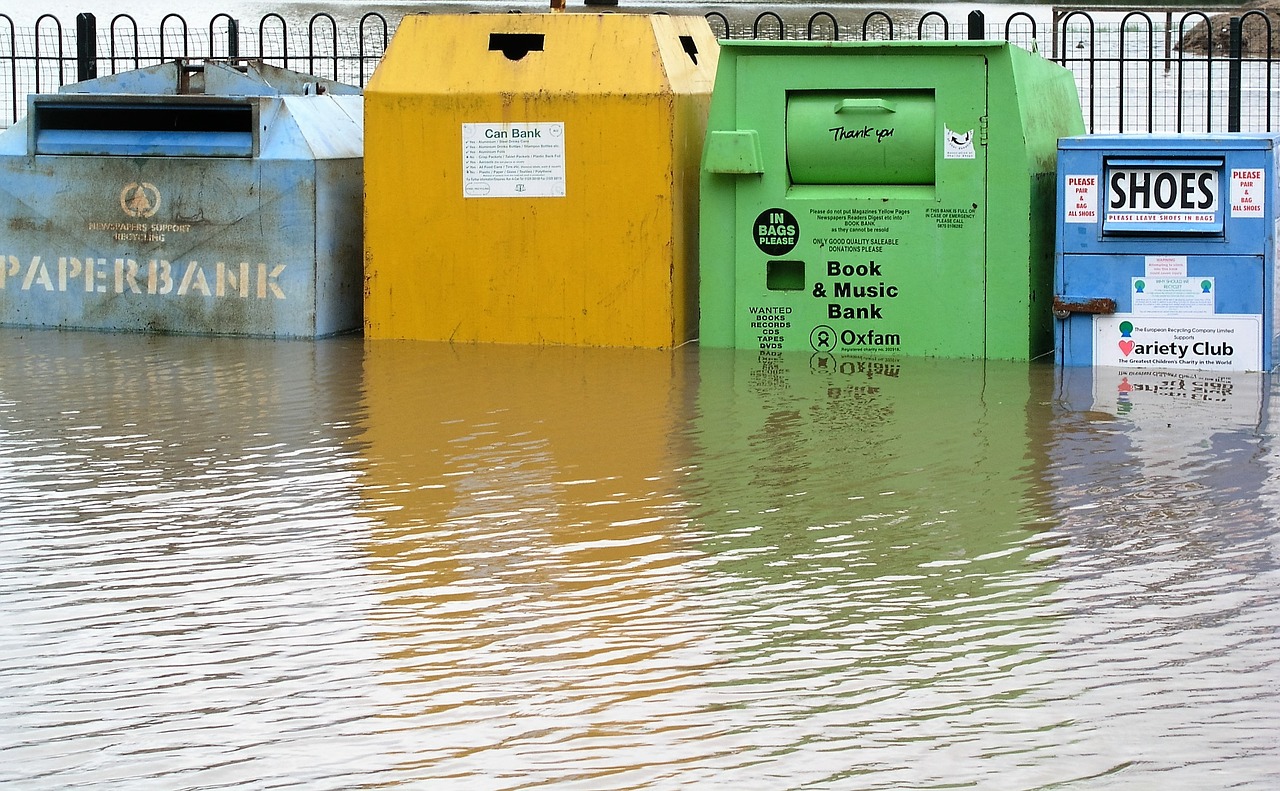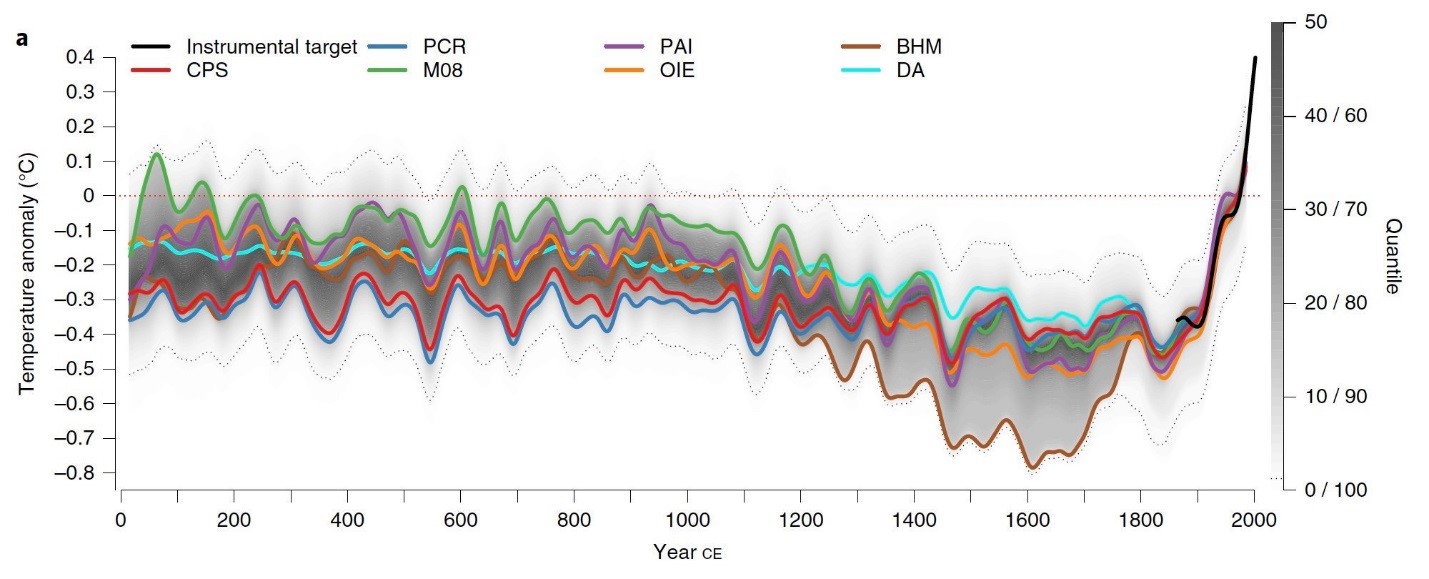Excessive media coverage of an email hacking tilted the outcome of a critically important event against the victims of the crime. Sound familiar?
In 2016, it happened to the Hillary Clinton presidential campaign and the Democratic National Committee. That was déjà vu for climate scientists, who seven years earlier had experienced a nearly identical chain of events leading up to the 2009 UN climate change conference in Copenhagen.
In summary: emails from the University of East Anglia in the UK were hacked, and many journalists assumed that where there was smoke, there must be fire. Even the Daily Show’s Jon Stewart jumped on the bandwagon, accusing climate scientists of trying to “trick you” based on a few selective, out-of-context quotes from the hacked emails (though he also later ripped the media for not covering the debunking of the Climategate myth). Commentators at the time were divided over whether this was a media storm, or just a storm in a very British teacup.
Like what you’re reading? Support our work!
Donate to DeSmog.com on Crowdrise and donate to DeSmog UK on Patreon.
Nonetheless, the Copenhagen climate summit a few weeks later was widely considered a failure. That wasn’t only because of the hacked emails, just as another cache of emails aren’t the sole reason for the words “President Donald Trump” — but in both cases the media-amplified story played a significant role in shaping subsequent events.
Nine separate inquiries into the email hack exonerated the climate scientists, but came well after the damage had been done. And a decade on, many of the climate science denial myths that emerged from the email hack are still in play.
So, on the 10th anniversary of what came to be known as ‘Climategate’, let’s examine three of the key email quotes that so captured the media’s attention, and how the associated science has since evolved.
Spoiler: the deniers’ lies haven’t aged well.
The misunderstood ‘trick’
One quote regularly mangled (most recently in a myth-filled Telegraph article, which was evaluated by the climate scientists at Climate Feedback as having “very low” scientific credibility) referred to using “Mike’s Nature trick … to hide the decline.” The ellipses mask that two separate issues were being discussed in this hacked email.
First, climate scientist Michael Mann’s “Nature trick” simply refers to adding temperature measurements from modern instruments to a chart illustrating indirect “proxy” temperature estimates (i.e., analyzing tree ring sizes) in the more distant past. The use of the word “trick” in the email was in the context of “trick of the trade,” not “tricking the audience.” If the latter were the case, the use of two different sources of data would not have been labeled as explicitly as possible in Mann’s scientific paper and subsequent reports.
Second, “hiding the decline” referred to the fact that indirect proxy temperature estimates from tree rings were known to be unreliable after about 1960. From about 1960 to 1990 they showed temperatures falling, whereas we know temperatures actually rose during that time.
Tree ring data matched other temperature records accurately prior to 1960 before diverging from the reliable instrumental record thereafter. Climate science research has linked this so-called “divergence problem” to increases in human-caused pollution in recent decades. The email in question was merely suggesting adding reliable instrumental temperature measurement data so that the chart being discussed didn’t end with a segment of data showing a “decline” that was known to be inaccurate. So, in fact, the “trick” was an effort to give as accurate information as possible (rather than the opposite, as was repeatedly alleged).
A related quote (also included in the Telegraph article) claimed that climate scientist Jonathan Overpeck asserted that “we have to get rid of the Medieval Warm Period (MWP).” This is a fabrication — Overpeck actually said, “I’m not the only one who would like to deal a mortal blow to the misuse of supposed warm period terms and myths in the literature.”
Overpeck was correct that the MWP is incorrectly referenced regularly. For example, the recent much-maligned Telegraph article went on to claim that the MWP (which roughly spanned the years 900 to 1300 AD) “was even hotter than today,” which is a relatively widespread myth. Numerous studies have reconstructed temperatures over the past several thousand years since Mann and colleagues published their paper in the scientific journal Nature in 1998. All have arrived at the same conclusion: that the MWP was at most a small blip in average global temperatures and that current temperatures are significantly hotter.
The most recent and robust such reconstruction was completed by a team of over 5,000 scientists from more than 100 countries contributing to the Past Global Changes (PAGES) 2k network, which produced the following chart of global temperatures over the past 2,000 years. It shows temperatures today rapidly rising above the historical record like the blade of a hockey stick.
Global mean surface temperature history over the Common Era (Pages 2k, Nature Geoscience, 2019)
Record ocean heat
Another oft-referenced quote comes from a stolen email from climate scientist Kevin Trenberth saying, “we can’t account for the lack of warming at the moment and it is a travesty that we can’t.”
As Trenberth has explained, this email referred to the fact that when it was written in October 2009, measurements of the amount of heat in the Earth’s climate system didn’t match what they should have been based on the overall global energy imbalance (more incoming than outgoing energy) measured by satellites. This discrepancy was due to the limitations of our observational systems, particularly in the deeper oceans — a limitation that at the time frustrated climate scientists like Trenberth.
Fortunately for Trenberth’s distress levels, measurements of the heat content of the oceans have improved significantly over the past decade, especially with more data coming from the Argo float network and its 3,000 buoys deployed in oceans around the world. In recent research, Trenberth and colleagues have now resolved his “travesty,” as heat measured in the oceans and other parts of the Earth’s climate system now match the global energy imbalance from satellite measurements.
The oceans absorb over 90 percent of that trapped heat — a vast and accelerating amount. A UN Intergovernmental Panel on Climate Change Special Report on oceans and ice from this year concluded that during the mid-to-late 20th century, the oceans absorbed an amount of heat equivalent to the energy of two Hiroshima atomic bombs every second. Since 1993, the ocean heating rate has gone up to five atomic bombs per second.
Record surface temperatures
A third popular myth has unraveled as independent reviews into the leak were completed and, well, the world has simply kept getting hotter: the myth that climate scientists were deleting or “manipulating” raw data to exaggerate the warming trend.
The Independent Climate Change Email Review concluded that the climate scientists were “not in a position to withhold access to [temperature] data or tamper with it. We demonstrated that any independent researcher can download station data directly from primary sources and undertake their own temperature trend analysis.” Many independent analysts have done just that, downloading the publicly available raw data and demonstrating that it contains a warming trend nearly identical to that in the data that have been adjusted to remove various biases.
In fact, overall the adjustments slightly raise the estimated temperature in the early 20th century so slightly decrease the warming over the past century compared to the raw data.
Meanwhile, global surface temperatures have continued to rise over the past decade. The past five years have been the five hottest ever recorded, and 2019 will add to that streak, on pace to be the second-hottest on record. Over the past decade, temperatures have risen by about 0.3°C (0.5°F), surpassing the overall 1°C (1.8°F) hotter increase over pre-industrial temperatures.
Science doesn’t stop
Fortunately, the world has moved beyond the Climategate debacle of 2009.
Not only has climate science continued to become ever-more robust, but most media outlets no longer uncritically parrot myths peddled by climate deniers (with some notable recent exceptions).
In the face of extreme scrutiny catalyzed by Climategate, climate scientists kept on doing what they do best — researching. And thanks to their efforts, everyone now knows a lot more about causes and scale of the climate change challenge than they did a decade ago.
Dana Nuccitelli is an environmental scientist and author of ‘Climatology vs Pseudoscience: Exposing the Failed Predictions of Global Warming Skeptics’. He has been a contributor to Skeptical Science for almost a decade and now writes for Yale Climate Connections and other outlets.
Main image: Flooded waste bins. Credit: Artyangel, CC0
Subscribe to our newsletter
Stay up to date with DeSmog news and alerts








